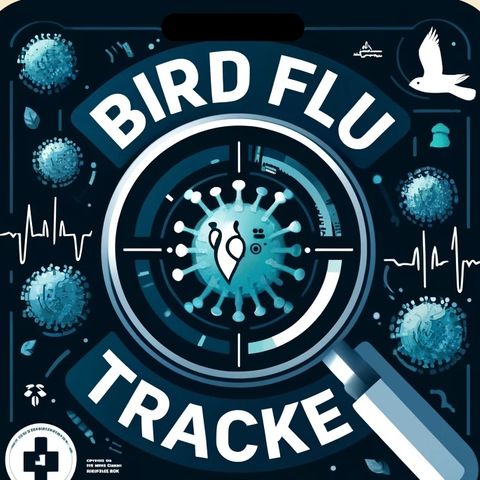Bird Flu update for 09-24-2024

Sign up for free
Listen to this episode and many more. Enjoy the best podcasts on Spreaker!
Download and listen anywhere
Download your favorite episodes and enjoy them, wherever you are! Sign up or log in now to access offline listening.
Bird Flu update for 09-24-2024
This is an automatically generated transcript. Please note that complete accuracy is not guaranteed.
Description
In a significant outbreak of avian influenza, more than 64,000 turkeys at a poultry farm in Merced County, California, are being culled in an effort to contain the virus and...
show moreAvian influenza, commonly known as bird flu, is a highly contagious viral disease affecting bird populations. It can have devastating effects on poultry operations due to the rapid spread and potential fatality of the disease. The detection of the virus at the Merced County facility prompted immediate action from both state and federal agricultural departments to mitigate the risk to the poultry industry and, crucially, prevent any potential transmission to humans.
The decision to cull the turkeys is part of a broader set of protocols designed to control such outbreaks. These include establishing quarantine zones and biosecurity measures around affected areas. The goal of these measures is to not only stop the spread of the virus but also to monitor it closely for any mutations that could pose additional risks.
Merced County, situated in the agriculturally rich Central Valley of California, is a significant area for poultry production, making this outbreak a major concern for local farmers and the wider agricultural community. The loss of tens of thousands of turkeys is not only a financial hit to the producers but could also affect local markets and supply chains dependent on poultry products.
Health officials have emphasized that the risk of avian influenza transmitting from birds to humans remains low, but they continue to advise caution. People working directly with poultry are at higher risk and are advised to use protective gear and follow recommended safety protocols to reduce exposure.
The outbreak is being closely monitored by several government agencies, including the United States Department of Agriculture and the California Department of Food and Agriculture, which are working collaboratively to manage the situation and support the affected communities.
Researchers and veterinarians are also monitoring the virus closely for any changes in its behavior or mutations that could suggest an evolving risk to public health. The current strain of the virus does not appear to infect humans, but influenza viruses are known for their potential to mutate, which requires ongoing vigilance and research.
For now, the focus remains on containment and prevention, as officials strive to protect both the agricultural industry and public health. Efforts are ongoing, with regular updates expected as authorities and experts continue to assess the progress of their intervention strategies.
Information
| Author | QP-3 |
| Organization | William Corbin |
| Website | - |
| Tags |
Copyright 2024 - Spreaker Inc. an iHeartMedia Company
